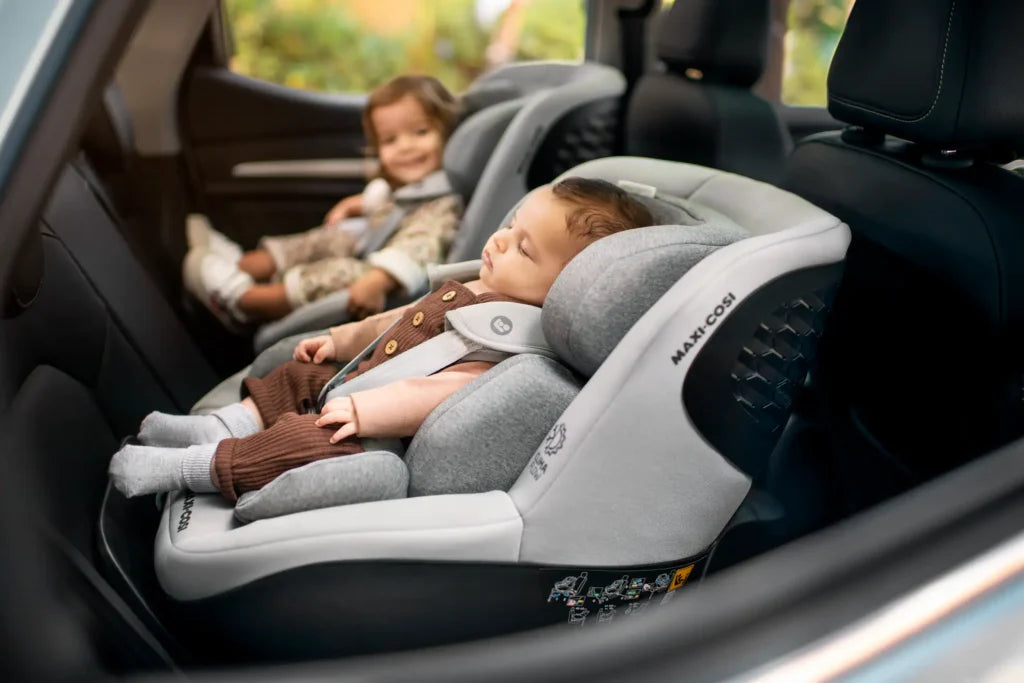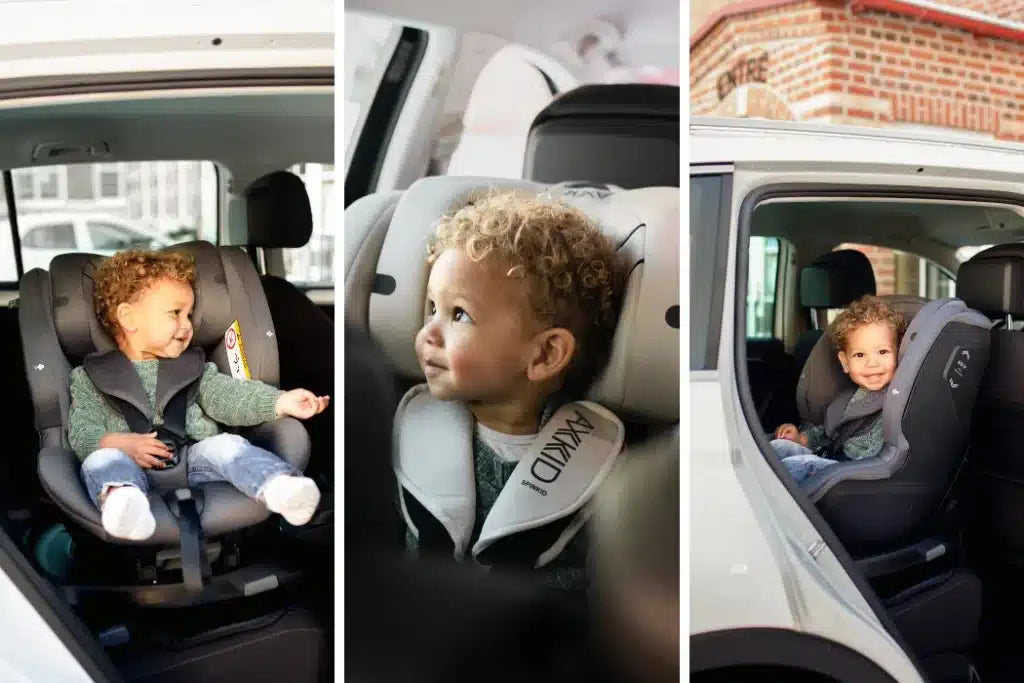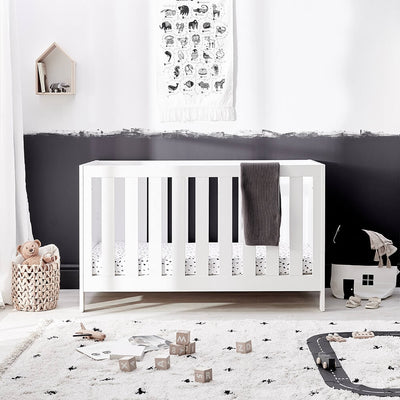Extended Rear-Facing Car Seats are the Superior Form of Protection for your little one. Here is the Ultimate Guide to why Families should Rear-Face their Children for Longer.
Table of contents
- Introduction to Extended Rear-Facing Car Seats
- Why Extended Rear-Facing is Safer
- The Importance of Following Guidelines
- Extended Rear-Facing Brands: Axkid and BeSafe
- Extended Rear-Facing: Worth and Guidelines
- How Long Can a Baby Be Rear-Facing in the UK?
- Extended Rear-Facing: Safety and Comfort
- Swedish Plus Testing: The Gold Standard
- Selecting the Right Extended Rear-Facing Car Seat
- Extended Rear-Facing and Older Children
- Extended Rear-Facing: A Parent’s Perspective
- Conclusion: Why Extended Rear-Facing is the Safer Choice
Introduction to Extended Rear-Facing Car Seats
Understanding the Basics
Extended rear-facing car seats (ERF) are designed for children to sit facing the rear of the vehicle for longer than traditional car seats. This seating arrangement has been praised for its enhanced safety features, particularly in the event of a collision. But what exactly is an ERF car seat, and why is it considered a safer option for young children?
The Concept of Extended Age Rear-Facing
An extended age rear-facing car seat is one that allows children to remain in the rear-facing position beyond the age of two, which is typically the standard recommendation for traditional car seats. These seats are engineered to accommodate higher weight and height limits, allowing children to remain rear-facing until they are older, often up to four years or more.
Why Extended Rear-Facing is Safer

Safety Benefits Explored
The primary reason why extended rear-facing is considered safer lies in the way it supports a child’s head, neck, and spine during a collision. In a front-end crash, the most common type of collision, a rear-facing seat cradles and moves with the child, reducing the stress on their fragile cervical spine.
Insights from Crash Statistics
Studies and crash statistics have consistently shown that children in rear-facing seats are significantly less likely to be injured in a crash compared to those in forward-facing seats. This is particularly crucial in the early years when a child’s spine and neck are still developing and more vulnerable to injury.
The Importance of Following Guidelines
Understanding the Guidelines
These particular kind of car seats come with specific guidelines that parents should follow. These guidelines often include weight and height limits, as well as age recommendations. Adhering to these guidelines ensures that your child gets the maximum safety benefits from the car seat.
UK Specific Regulations
In the UK, the regulations around car seat safety are stringent. For extended rear-facing seats, it’s important to understand how long a baby can be rear-facing. UK laws and guidelines provide clear directives on this, ensuring children’s safety is prioritized in line with the latest safety research.
Extended Rear-Facing Brands: Axkid and BeSafe

Axkid: Pioneering Safety
Axkid is renowned for its commitment to extended rear-facing safety. Their seats are designed with the Swedish Plus Test in mind, one of the most rigorous car seat testing procedures in the world. Axkid’s focus on safety, innovation, and design makes them a leading choice for parents who prioritise extended rear-facing.
BeSafe: A Commitment to Protection
BeSafe, another leading brand in the car seat market, emphasises the importance of extended rear-facing for as long as possible. Their seats are engineered with advanced safety features, aligning with the strictest European standards to ensure maximum protection for children.
Extended Rear-Facing: Worth and Guidelines
Is Extended Rear-Facing Worth It?
When considering the benefits of extended rear-facing car seats, parents often ask, “Is it worth it?” The answer lies in the overwhelming evidence supporting the safety advantages. Extended rear-facing seats significantly reduce the risk of severe injuries in infants and toddlers during car accidents. The support they provide to the head, neck, and spine is unparalleled, especially in frontal collisions, which are the most common and severe.
Guidelines for Extended Rear-Facing
The guidelines for extended rear-facing are straightforward but vital for ensuring safety. These include keeping children rear-facing until they reach the maximum height or weight limit set by the car seat manufacturer. In the UK, it is advised to keep children rear-facing for as long as possible, ideally until they are at least four years old, as long as the child fits within the manufacturer’s specified limits.
How Long Can a Baby Be Rear-Facing in the UK?

UK Specific Age Limit
In the UK, the current recommendations suggest that babies should be in a rear-facing car seat from birth until they are at least 15 months old. However, experts often recommend extending this period much longer. The age limit for extended rear-facing seats can go up to four years or more, depending on the child’s size and the specifications of the car seat.
Benefits of Longer Rear-Facing
The longer a child stays rear-facing, the better the protection for their head, neck, and spine during collisions. This extended period is crucial because a young child’s skeletal structure is not yet fully developed, making them more susceptible to injuries in the event of a crash.
Extended Rear-Facing: Safety and Comfort
Why Extended Rear-Facing is Safer
ERF car seats are safer due to the way they distribute the force of a collision. In a rear-facing seat, the force is spread across the entire back of the car seat, which is much larger than the area of impact in a forward-facing seat. This distribution significantly reduces the strain on any single part of the child’s body.
Comfort and Practicality
Apart from safety, comfort is another crucial aspect of extended rear-facing seats. These seats are designed to offer more legroom and adjustable recline positions, ensuring that children are not only safe but also comfortable during their travels. Brands like Axkid and BeSafe prioritize both safety and comfort in their designs.
Swedish Plus Testing: The Gold Standard

Understanding Swedish Plus Testing
Swedish Plus car seat testing is considered one of the most rigorous testing standards in the world. It focuses on measuring the forces exerted on the neck during frontal collisions. Car seats that pass the Swedish Plus Test are proven to offer superior protection in these scenarios.
Axkid and BeSafe: Meeting High Standards
Brands like Axkid and BeSafe subject their car seats to these stringent tests, ensuring that they meet the highest safety standards. By choosing a seat from these brands, parents can be assured of a product that has been tested and proven to provide the utmost protection for their child.
Selecting the Right Car Seat
Key Considerations for Parents
Choosing the right ERF car seat involves several important considerations. Parents should look for seats that not only fit their child’s height and weight but also are compatible with their vehicle. It’s essential to check the installation method (ISOFIX or seatbelt), adjustability for growth, and ease of use.
Balancing Safety with Convenience
While safety is the primary concern, the ease of installation and use are also important. A seat that is difficult to install correctly can compromise safety. Features like clear installation indicators and adjustable harnesses can make a significant difference in day-to-day use.
Extended Rear-Facing and Older Children

Age Limit for Extended Rear-Facing Seats
There’s often confusion about the age limit for extended rear-facing seats. While the minimum is set by law, there’s no maximum age limit. Instead, it depends on the seat’s height and weight capacity. Most extended rear-facing seats in the UK cater to children up to 18 kg or about four years old, but some models can accommodate older children.
Transitioning to Forward-Facing
The transition from rear-facing to forward-facing should be based on the child’s growth and the seat’s specifications, not just age. It’s safer to keep children rear-facing for as long as possible within the limits of their car seat.
Extended Rear-Facing: A Parent’s Perspective
Real-Life Benefits
From a parent’s perspective, extended rear-facing seats offer peace of mind knowing that their child is in one of the safest car seat options available. The additional comfort features ensure that long journeys are more enjoyable for both the child and the parents.
Addressing Common Concerns
Some parents worry about children being uncomfortable with less legroom or not being able to see out of the window. However, many children find rear-facing positions comfortable, and the design of modern extended rear-facing seats often addresses these concerns with increased space and better viewing angles.
Conclusion: Why Extended Rear-Facing is the Safer Choice

Summarising the Safety Benefits
Extended rear-facing car seats provide superior protection in the most severe types of crashes. By supporting the head, neck, and spine more effectively, these seats significantly reduce the risk of injury to young children.
Making an Informed Decision
As a parent, choosing the right car seat is one of the most important decisions you can make for your child’s safety. Brands like Axkid and BeSafe offer options that meet the highest safety standards, including passing the rigorous Swedish Plus testing.
A Final Word
Remember, every child is different, and the choice of car seat should be based on individual needs and circumstances. By staying informed and prioritising safety, parents can make the best choices for their children’s travel safety.
At Pushchair Expert, we understand the importance of your child’s safety and comfort during travel. That’s why we offer a diverse range of car seats, catering to various needs and preferences. Our collection, available both online and at our Peterborough-based store, features top brands, ensuring you have access to the best in child car seat safety.
Our expert staff are knowledgeable advisors who are passionate about child safety. They are always ready to assist you in understanding the features and benefits of each product, helping you make an informed decision. And when you choose a car seat from us, we don’t just hand you a box. Our team is on hand to install the seat in your car, ensuring it’s fitted correctly for optimum safety.


